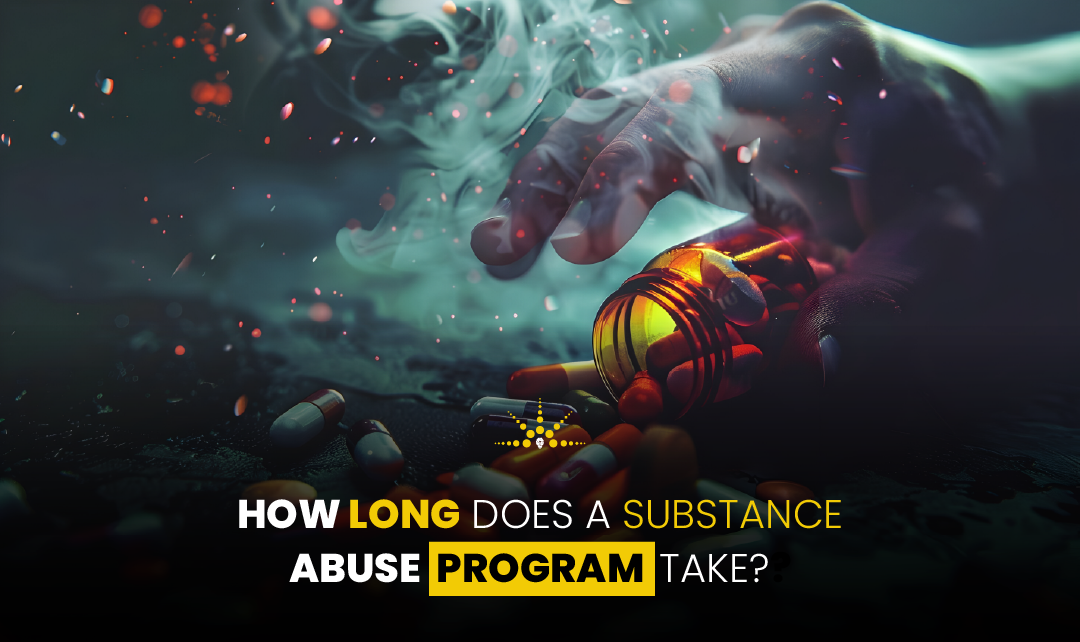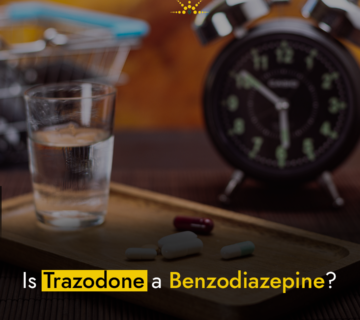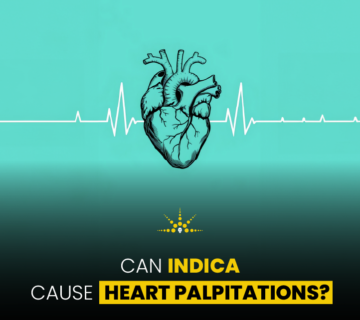Substance abuse is a complicated issue that affects millions of people worldwide.
The journey of recovery is unique and depends on person to person, and one of the most common questions people ask is, “How long does a substance abuse program take?”
It depends on many factors.
Depending on various factors such as the severity of the addiction, the type of substance abuse, the individual’s commitment to recovery, and the type of treatment program chosen.
We’ll look into these factors to give you a complete understanding of the duration of substance abuse programs.
If you are experiencing mental health issues, give Safestar Psychiatric and Wellness LLC a try.
When it comes to substance abuse, they can help you more effectively.
What Is the Most Abused Drug in the United States?
Alcohol is the substance most often mishandled in America. This commonly used intoxicant medicine causes considerable public health issues.
It holds the record for causing more fatalities and emergencies than any other, crossing a shocking figure of 178,000 deaths related to alcohol use each year.
Misuse of alcohol causes chronic illnesses such as liver disease and certain cancers, as well as being a leading cause of fatal car accidents and self-harm.
Despite being lawful, it is easy accessibility, and societal approval makes it the most overused entity nationwide.
Understanding Substance Abuse Treatment Programs
These treatments are designed to help peoples to stop taking alcohol, drugs and other supplements’.
Before go into details, its necessary to understand the different types of substance abuse treatment programs available. The duration of a program can depending on the type of treatment.
Here are the most common treatments:
-
Detox
Detox is mostly the first step in a substance abuse treatment program.
Detox is a crucial aspect of early rehabilitation, but it is not a comprehensive cure.
Detox is a set of medical and psychological interruption. designed to help you safely and comfortably withdraw from a substance to better prepare you for additional treatment.
The duration of detox depending on the substance used and the severity of the addiction.
-
Inpatient or Residential Treatment
Inpatient treatment provides environment where person can focus completely on their recovery without external distractions.
The program typically includes
- Individual therapy
- Group therapy
- Family counseling
Treatments like art therapy, yoga, and meditation.
The goal is to address not only the physical aspects of addiction but also the psychological and emotional factors contributing to substance abuse.
People may enter short- or long-term inpatient treatment programs that can last anywhere from a few weeks to months depending on the level of care needed.
-
Outpatient Treatment
Outpatient treatment allows people to maintain their daily responsibilities, such as work or school, while taking treatment.
It’s a flexible option for those who don’t require the intensive care provided in an inpatient setting.Outpatient programs typically involve regular therapy sessions, People sometimes use outpatient treatment as a step-down form of rehab once they’ve completed an inpatient stay.
You can go to outpatient care on on a regular schedule, depending on your needs.
The intensity and type of services offered at outpatient rehabs can depending on the program,
But can include a combination of:
- Detox
- Individual counseling
- Group therapy
- Medication
As recovery progresses, the frequency of sessions may decrease, but continued support remains available as needed.
4. Medication-Assisted Treatment (MAT)
MAT (medication-assisted treatment) involves the use of specific medications, in combination with counseling and behavioral therapies, to treat substance use disorders.
It is an evidence-based treatment that is used to help addiction to certain substance to promote recovery.
The goal of MAT is to normalize brain chemistry, block the euphoric effects of alcohol and opioids, relieve physiological cravings, and balance body functions without the negative effects of the abused drug.
Common Medications Used in MAT:
- Methadone
- Buprenorphine
- Naltrexone
Who Can Benefit from MAT?
- Individuals with Opioid Use Disorder (OUD): MAT is highly recommended for those struggling with opioids like heroin, painkillers or synthetic opioids.
- Individuals with Alcohol Use Disorder (AUD): MAT can be effective for those who have developed a dependence on alcohol, especially if they have experienced withdrawal symptoms or failed.
- Individuals with Co-occurring Disorders: Those who have both a substance uses disorder and a mental health condition.
If you or someone you know is struggling with addiction, consider reaching out to a healthcare provider to discuss whether MAT might be a suitable option.
Factors Influencing the Duration of a Substance Abuse Program
Many factors determine the length of a substance abuse program.
· Severity of Addiction
The more severe the addiction, the longer the treatment program may need to be. Individuals with a long history of substance abuse or those who have used highly addictive substances may require extended treatment to address the physical and psychological aspects of addiction fully.
· Type of Substance Abused
Different substances have different withdrawal symptoms and long-term effects, which can affect the duration of treatment. For example, withdrawal from opioids can be prolonged and severe, requiring longer detox and treatment periods compared to other substances.
· Presence of Co-occurring Disorders
Many individuals with substance abuse issues also have co-occurring mental health disorders, such as depression or anxiety. Treating both the addiction and the mental health condition can make longer the duration of the program.
Recovery is not a straight process, and each person’s journey is unique but a strong support system including family, friends plays an important role in a person’s recovery.
The Importance of Aftercare
It’s important to note that recovery doesn’t end when a substance abuse program is completed.
Aftercare is a most important component of the recovery process and can direct effects on a long-term success.
Aftercare Includes:
- Sober Living Homes: transitional housing that provides a supportive environment as individuals reintegrate into society.
- Ongoing Therapy: continued counseling or therapy to address lingering issues and prevent relapse.
- Support Groups: regular attendance at support group meetings such as Alcoholics Anonymous (AA) or Narcotics Anonymous (NA).
- Prevention of Relapse: Scheduling Formulating plans to control triggers and stop relapses.
Wrapping Up
How long does a substance abuse program take?
How long a drug prevention program lasts can depend on things like how severe the addiction was, what substance was involved, and the treatment plan.
Recovery is not a competition. It doesn’t stop when the program ends. Check-ins post treatment are essential to stay substance free, providing ongoing help and tools to tackle real-life after therapy.
It is possible to recover successfully if you have a solid support system and an appropriate treatment plan.
FAQs
-
What is detox, and how long does it take?
Detox is when you quit a substance safely with a doctor’s help. How long it takes depends on the drug and how strong the addiction is, but it’s usually a few days to a week.
-
What is medication-assisted treatment (MAT)?
MAT uses drugs, counselors, and behavior therapies to fight drug use disorders. It’s suitable for opioid and alcohol addictions.
-
Can I continue working while in a substance abuse program?
Yes, outpatient plans are built so people can keep doing daily tasks, like jobs or school, as they get older.
-
What factors influence the length of treatment?
Things like addiction strength, the drug used, and if there are any other mental health issues can all change how long treatment lasts.
-
What happens after I complete a substance abuse program?
Care is vital for staying better over time. It has choices like more therapy, support groups, and sober living places to stop relapses.







No comment